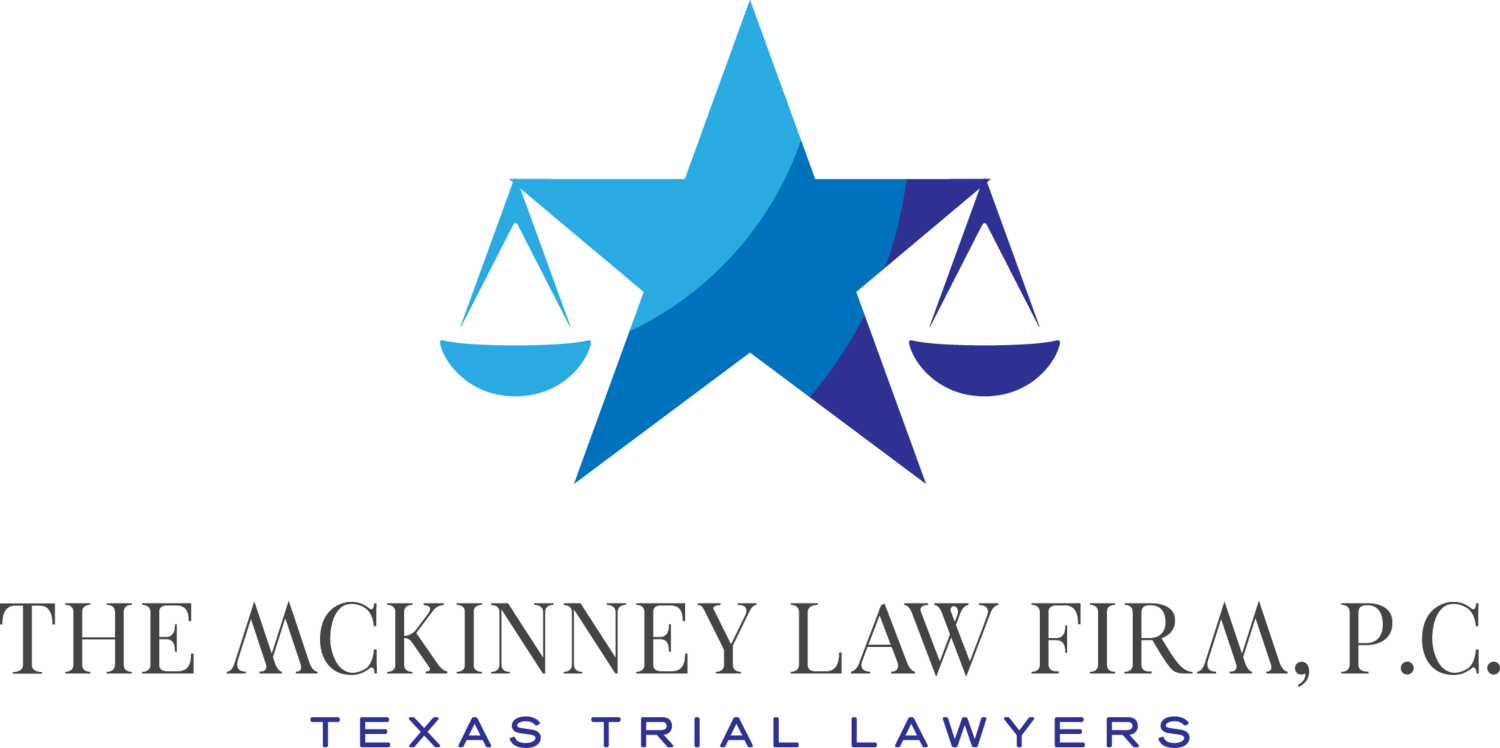In our current environment of a new scandal every five minutes, it is easy for really important issues to get lost in all the noise. One such big issue currently pending is the nomination of Neil Gorsuch to the U.S. Supreme Court.
Some oppose Gorsuch's nomination not for anything he has said or done himself, but because of the hotly contested and partisan manner in which his potential seat on the Court was arguably stolen from an equally qualified candidate by certain members of Congress last year. I personally think it was a big mistake for the republicans to inject even more partisan politics into the manner in which Supreme Court justices are selected. In our system of jurisprudence, the Supreme Court's power comes solely from its credibility with the American people. The more partisan the Court looks, the weaker it becomes. Regardless of one's position on the issues the Court decides, it is in all of our interests for the Court to be respected and considered to be above politics to the greatest degree possible.
Putting that issue aside for the moment, organizations that typically vet Supreme Court candidates are starting to come in with their assessments of him on issues that are important to said organizations' memberships. This week the National Employment Lawyers Association announced their opposition to Mr. Gorsuch. NELA is the largest organization of U.S. attorneys who primarily represent employees.
NELA's letter in opposition to Mr. Gorsuch, the text of which I include in full below, gives several reasons for the organization's opposition to his appointment. However, the most important reason listed, to my mind, is Mr. Gorsuch's reported antipathy for the jury trial...at least in employment cases.
There have been several news reports over the course of the preceding few weeks touting Mr. Gorsuch's love of the jury trial and his plan to bring it back. Others have discussed Gorsuch's antipathy for the McDonnell-Douglass burden shifting framework in employment cases (an optional but usually-used framework for analyzing employment-related claims frequently used by judges to dismiss discrimination and harassment cases without a trial). On the surface both of these positions seem to align with the interests of employees. I hope that Gorsuch's statements regarding these issues are genuine and would support his efforts in this regard.
But what NELA points out is that Judge Gorsuch, like many federal judges, has gotten into the bad habit of doing the jury's work for them in far to many cases. Rather than denying motions for summary judgment whenever there is a fact question at issue to be decided by a jury, he all to often weighs the evidence, draws inferences against the employee, and decides the credibility of the witnesses in the case -- all issues that are supposed to be left to the wisdom of the jury.
Judge Gorsuch is, sadly, not unique in these reported failings. Federal judges overstepping their Constitutional role in employment cases to make improper fact determinations is a well-known problem throughout the country. (Read: "When it comes to employment cases, judges are killing the Civil Rights Act of 1964" by Judge Richard Kopf as well as "Anti-Discrimination Laws Have Been "Gutted"" on this blog.) It is a serious problem that threatens one of the most sacred elements of the American system -- the Constitutional right to a trial by jury.
The following is the full text of NELA's letter in opposition to Judge Gorsuch's nomination:
March 13, 2017
Submitted Via Email:
Ted_lehman@judiciary-rep.senate.gov
Paige_herwig@judiciary-dem.senate.gov
The Honorable Chuck Grassley, Chairman
United States Senate Committee on the Judiciary
224 Dirksen Senate Office Building
Washington, DC 20510
The Honorable Dianne Feinstein, Ranking Member
United States Senate Committee on the Judiciary
152 Dirksen Senate Office Building
Washington, DC 20510
Dear Chairman Grassley and Ranking Member Feinstein:
On behalf of the National Employment Lawyers Association (NELA), and its 4,000 circuit, state, and local affiliate members across the country, I write to express our strong opposition to the nomination of Judge Neil M. Gorsuch to the United States Supreme Court.
NELA is the largest professional membership organization in the country comprising lawyers who represent workers in labor, employment and civil rights disputes. Founded in 1985, NELA advances employee rights and serves lawyers who advocate for equality and justice in the American workplace. Our members litigate daily in every circuit, affording NELA a unique perspective on how employment cases actually play out on the ground. NELA strives to protect the rights of its members’ clients, and envisions a workplace in which employees will be paid at least a living wage in an environment free of discrimination, harassment, retaliation, and capricious employment decisions; employees’ safety and livelihood will not be compromised for the sake of corporate profit and interests; and individuals will have effective legal representation to enforce their rights to a fair and just workplace, adequate remedies, and a right to trial by jury.
As a member of the Tenth Circuit Court of Appeals, Judge Gorsuch has demonstrated a troubling propensity to both draw inferences against plaintiff-employees and make improper determinations regarding the credibility of the respective parties when deciding whether an employee should be permitted to present her claims to a jury (the procedural posture in most employment cases on appeal). This practice runs afoul of the applicable provisions of the Federal Rules of Civil Procedure and rulings from the Supreme Court. Judge Gorsuch has shown an affinity for deploying legal reasoning unsupported by the text and purposes of the particular employment laws at issue, and adopting inappropriately narrow readings of both the facts and law in ways that operate to the detriment of employees seeking to vindicate their statutory rights. This pattern gives rise to the question of whether Judge Gorsuch places the interests of employers over the rights of employees, which should be fully explored during his confirmation hearing.
Judge Gorsuch’s tendencies as described above are made more troubling by his much-discussed skepticism regarding the doctrine of Chevron1 deference. Administrative regulations, as well as other interpretations and enforcement guidance from administrative agencies such as the Equal Employment Opportunity Commission (EEOC) and National Labor Relations Board (NLRB) provide invaluable guidance to employers and employees regarding the nature of their rights and responsibilities, and are an essential tool for judges and advocates in resolving employment disputes. One can imagine many ways in which a Supreme Court Justice with Judge Gorsuch’s apparent tendencies regarding employment cases, further unencumbered by any responsibility to defer to authoritative interpretations developed by the agencies charged with interpreting and enforcing our workplace laws, could undermine profoundly the effective enforcement of the employment laws passed by Congress.
The case descriptions that follow constitute representative examples of the ways in which Judge Gorsuch’s jurisprudence in employment cases has manifested itself in cases arising under a number of different employment statutes.
A. Hwang v. Kansas State Univ.2 (Disability Discrimination)
After she was diagnosed with cancer, Professor Grace Hwang requested and received a six-month leave of absence covering the fall semester to recover from a bone marrow transplant. As she was preparing to return to teaching the following January, a flu outbreak erupted on campus. Because her doctor advised her not to subject her compromised immune system to such an environment, she sought further leave, during which she could have worked from home. This request contravened the employer’s rule capping all leave requests to a maximum of six months.
Judge Gorsuch ruled that Professor Hwang’s request for an additional leave of absence was unreasonable and affirmed the dismissal of her case. Applicable law requires that requests for accommodations be evaluated on a case-by-case basis, and in U.S. Airways, Inc. v. Barnett 3, the Supreme Court suggested that a reasonable accommodation may require an employer to modify an otherwise neutral rule (such as this employer’s six-month cap on leave). Judge Gorsuch’s reasoning also contravened EEOC Enforcement Guidance, and conflicted with rulings from numerous other Circuit Courts of Appeals.
B. Roberts v. Int’l Bus. Machines Corp.4 (Age Discrimination)
In affirming summary judgment in favor of the defendant-employer in this case, Judge Gorsuch demonstrated a number of troubling propensities that employee rights advocates understand all too well: he both drew inferences against the non-moving party and improperly weighed the evidence in a manner that Supreme Court law requires be done by a jury.
In a text message conversation, two of the defendants’ human resources employees were quoted as referencing the plaintiff’s “shelf life” in deciding whether to eliminate his position (they subsequently did). In deciding that the phrase could not constitute direct evidence of discrimination, Judge Gorsuch concluded that “the instant message conversation unmistakably suggests that ‘shelf life’ was nothing worse than an inartful reference to Mr. Roberts’s queue of billable work.”
He then moved to the question of whether the phrase, in conjunction with conflicting evidence regarding the plaintiff’s performance record, could demonstrate that the defendant’s alleged reasons for firing the plaintiff were a pretext for age discrimination. Judge Gorsuch held that the plaintiff could not demonstrate that changes in his performance reviews were a pretext for discrimination unless he could “advance evidence that IBM’s changed evaluation of his performance, whether wise or mistaken, wasn’t honestly arrived at.”
The only way in which Judge Gorsuch could reach such conclusions about the meaning of statements such as “shelf life” and the credibility of the defendant’s asserted reasons for terminating the plaintiff was by drawing a series of inferences in the defendant’s favor, and by avoiding a more common interpretation of the phrase “shelf life” when applied in conversation to an older employee. Longstanding Supreme Court precedent holds that judges must avoid drawing such inferences when deciding whether a case should be dismissed or proceed to trial.5
C. TransAm Trucking, Inc. v. Administrative Review Board 6 (Whistleblower Retaliation)
Alphonse Maddin worked as a truck driver for the defendant-employer. He was driving a tractor-trailer down an Illinois freeway on a subzero night in 2009 when he noticed that his truck was nearly out of gas. He pulled over because he could not find a fuel station, and ten minutes later, the trailer’s brakes locked up due to the frigid temperatures. Mr. Maddin was unable to resume driving the tractor-trailer and reported the truck’s unsafe condition to a dispatcher. The dispatcher told Mr. Maddin that a repairperson would be sent to fix the brakes.
Mr. Maddin dozed off briefly and awoke to find that his torso was numb and he could not feel his feet. He told the dispatcher about his physical condition and asked when the repairperson would arrive. “[H]ang in there,” the dispatcher responded.
Approximately one half hour later, Mr. Maddin called his supervisor, Larry Cluck, and told Mr. Cluck that his feet were going numb and that he was having difficulty breathing. Mr. Cluck told Mr. Maddin not to leave the trailer and gave him two options: drag the trailer with inoperable brakes, or stay put until the repairperson arrives. Mr. Maddin knew that dragging the trailer was illegal, but concluded that he might not live much longer if he were to wait for a repairperson. Consequently, Mr. Maddin unhitched the trailer and drove off.
Fifteen minutes after Mr. Maddin left—more than three hours after he first notified TransAm that he was stranded in subzero temperatures—the repairperson arrived. Mr. Maddin drove the truck back to meet the repairperson, who then fixed the trailer’s brakes. Less than a week later, TransAm terminated Mr. Maddin for abandoning the trailer. Mr. Maddin filed suit, as the applicable law prohibits an employer from firing an employee who “refuses to operate a vehicle because . . . the employee has a reasonable apprehension of serious injury to the employee or the public because of the vehicle’s hazardous safety or security condition.”
An Administrative Law Judge, a panel of the Department of Labor’s Administrative Review Board (ARB), and a majority of the Tenth Circuit Court of Appeals panel that reviewed this case agreed that Mr. Maddin had engaged in protected activity and was retaliated against. Judge Gorsuch, however, dissented, and went out of his way to disregard the ARB’s statutory interpretation, adopt an unnecessarily narrow interpretation of the term “operate” to conclude that Mr. Maddin had not engaged in protected activity, and belittle the applicable statute’s health and safety goals as “vague and generic.”
D. Strickland v. UPS, Inc.7 (Retaliation Under the Family and Medical Leave Act and Gender Discrimination)
In this case, the plaintiff was subjected to intense and unwarranted scrutiny of her performance after returning from a protected and approved two-week leave under the Family and Medical Leave Act. She was required to attend additional meetings that took her away from her responsibilities, was required to commit to unrealistic performance goals, and was prevented from raising concerns regarding her treatment in line with applicable company policy. Multiple co-workers testified that the plaintiff was treated differently than her all of her co-workers after her return from leave. The treatment worsened to the point where the plaintiff left the company, though she never officially quit and it was unclear whether she intended to return to work.
A majority of the Tenth Circuit Court of Appeals panel reversed the district court’s grant of judgment as a matter of law on the plaintiff’s constructive discharge claims (as applied to her retaliation claim), as there was conflicting evidence as to whether the plaintiff intended to return to work. The panel also reversed the district court on the plaintiff’s gender discrimination claims, finding that there was evidence that she was treated worse than her male co-workers.
Judge Gorsuch dissented, and would have affirmed the district court’s ruling on the plaintiff’s gender discrimination claim. Despite the evidence presented that indicated that the plaintiff was treated less favorably than her male co-workers, Judge Gorsuch concluded that the supervisor in question treated both male and female employees poorly. In reaching this conclusion, Judge Gorsuch disregarded evidence from a male co-worker that he was not subjected to the same scrutiny as the plaintiff, despite trailing her in all relevant sales categories. He also relied in part on evidence that another female employee did not also face differential treatment, despite applicable law holding that the fact that the defendant does not discriminate against every employee of the plaintiff’s protected class is no defense to a discrimination claim.
E. Weeks v. Kansas8 (Retaliation)
Judge Gorsuch held that in-house counsel did not engage in protected opposition to alleged unlawful discrimination when she advised a fire marshal to take seriously an employee’s complaints of discrimination, and he affirmed the district court’s grant of summary judgment.
This ruling is problematic for its adoption of an exception to existing anti-retaliation laws. This judge-created exception is not included in the text or supported by the purposes of Title VII of the Civil Rights Act. Pursuant to his approach, employees in positions that require them to monitor an employer’s compliance with the law (such as in-house counsel) must engage in special forms of opposition or participation activity to demonstrate that they have taken a position truly “adverse to their employer.” Absent proof of this higher level of opposition, employees who hold positions such as that of a general counsel, who in many cases will be the employee best equipped to learn about and oppose unlawful workplace discrimination, are not protected against subsequent retaliation.
In affirming summary judgment and dismissing the plaintiff’s case before trial, Judge Gorsuch also refused to resolve the question of whether the exception at issue conflicted with the Supreme Court’s decision in Crawford v. Metro. Gov’t of Nashville & Davidson Cty.,9 which suggested that all one must do to “oppose” unlawful workplace behavior and be protected against retaliation is to “antagonize ...; contend against; ... confront; resist; [or] withstand” it. Judge Gorsuch did so because the plaintiff failed to cite Crawford in her briefs, even though that fact does not prevent a judge from resolving an apparent conflict with binding Supreme Court precedent.
Employees who have been treated unlawfully in the workplace deserve a full and fair opportunity to prove their claims in our federal courts. Reasoning of the type found in many of Judge Gorsuch’s opinions undermines workers’ ability to vindicate their rights and undercuts the promise of a fair and just American workplace that is embodied by the employment statutes enacted by Congress. Judge Gorsuch’s treatment of both the law and facts in the cases cited above, and in others that we reviewed, suggests an ideological perspective which is unsympathetic to workers and too solicitous of employers, and belies his reputation as a committed textualist. As such, we respectfully urge you to oppose Judge Neil M. Gorsuch’s confirmation to the United States Supreme Court.
Sincerely,
Terisa E. Chaw
Executive Director
Read More: ScotusBlog Profile of Gorsuch - Natural Successor to Scalia





























